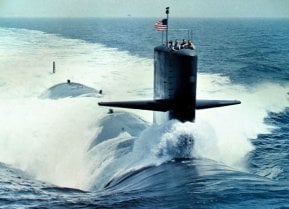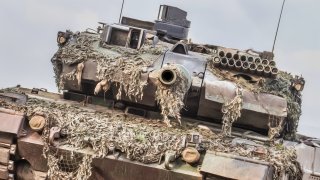Russia: A Threat to NATO When the Guns Falls Silent in Ukraine?
Russia's capacity and inclination to threaten NATO after the Ukraine war largely hinges on the terms of any ceasefire or peace treaty. To assess Russia's post-war threat to NATO, it's important to consider that while the Ukrainian army has gained significant combat experience, Russia has also learned from the conflict.
Russia's capacity and inclination to threaten NATO after the Ukraine war largely hinges on the terms of any ceasefire or peace treaty. To assess Russia's post-war threat to NATO, it's important to consider that while the Ukrainian army has gained significant combat experience, Russia has also learned from the conflict. This learning extends beyond the battlefield, Western resolve has been tested, and upcoming elections or political crises in Western countries may impact their willingness to support Ukraine.
After the war, the strongest safeguard against further Russian expansion would be a Ukraine capable of deterring Moscow. However, deploying NATO troops or powerful long-range weapons in Ukraine, the most effective means of deterrence, has not been warmly received by NATO capitals. Throughout the war, NATO has firmly aimed to minimize the risk of armed conflict with Russia; placing tripwire troops in Ukraine could lead directly to such a confrontation.
Kyiv's alternative plan is expedited NATO membership. According to reports, consensus within NATO to consider this option is growing. However, this raises a difficult question: are Ukraine and its key partners prepared to recognize Russia's annexation of parts of Ukrainian territory? Absent a significant battlefield setback, Moscow is likely to insist on such recognition as a precondition for any interim peace settlement.
Comparing the situation to West and East Germany is flawed, as the Federal Republic of Germany's security was guaranteed by the United States and its allies, preventing the Soviet Union from altering the status quo or seizing more territory. If Russia is willing and able to continue the war, a more apt comparison is the Treaty of Brest-Litovsk between the Russian Bolsheviks and Germany.
After the Bolsheviks initially refused to agree and attempted a "neither war nor peace" tactic during negotiations in early 1918, Germany resumed fighting and seized significant Russian territory. A separate peace treaty was signed only weeks later after the Bolsheviks recognized Germany's new territorial acquisitions, some of which Russia only regained after Germany's defeat by the Entente.
If Russia begins to rapidly gain ground in Ukraine, the risks of escalation could increase dramatically. Panic may spread across Europe, especially if Kyiv shows a willingness to settle on unfavorable terms. In a conversation with Russian state-sponsored pranksters posing as former Ukrainian President Petro Poroshenko earlier this year, Polish Foreign Minister Radosław Sikorski admitted that Poland's interest in supporting Ukraine would only intensify if the Ukrainian front began to collapse.
In such circumstances, Western governments would be torn between two major fears: the possibility of nuclear escalation by Russia and Russia's westward advance toward NATO borders. Essentially, they would be choosing between potentially disastrous scenarios in the near or long term.
It is uncertain whether the European Union could demonstrate sufficient resolve if the United States suggests that the EU find its ways to deter Russia. While this could mobilize Europe's resources, it might also prove divisive, leading to mutual recriminations in the economically challenged Union over who failed to recognize the Russian threat. A rising wave of nationalism in Europe, which Moscow might support, could further disrupt unity.
Even without a Russian breakthrough, if Western partners' willingness to support Ukraine diminishes significantly due to political or economic reasons, escalation would be unavoidable. While Ukraine is currently restrained by its partners from taking brinkmanship actions against Russia, in a critical situation Kyiv might feel compelled to act independently. The recent discussions about Ukraine's nuclear option suggest the possibility of such a scenario.
Although discussions about the need to negotiate are widespread, Russia asserts that it is prepared to continue fighting unless Ukraine accedes to all Russian demands, including, most importantly, adopting a neutral status, a non-starter for Kyiv, that would free Moscow's hands in post-war relations with NATO. The Kremlin cannot ignore the impact of peace on Russia's domestic stability. How long can Russia sustain its economy under sanctions, rampant inflation, and falling incomes without continuous investment in its military-industrial complex?
The proverbial can have been kicked too far down the road and now risks being crushed, unleashing several malign forces. Achieving a lasting settlement that can withstand Russia's ongoing destructive revisionism will require containing these forces once again.
About the Author
Mikhail Troitskiy is a visiting scholar at the Davis Center for Russian and Eurasian Studies, Harvard University, and a visiting professor at the Fletcher School of Law and Diplomacy, Tufts University.
Image Credit: Creative Commons and/or Shutterstock.


